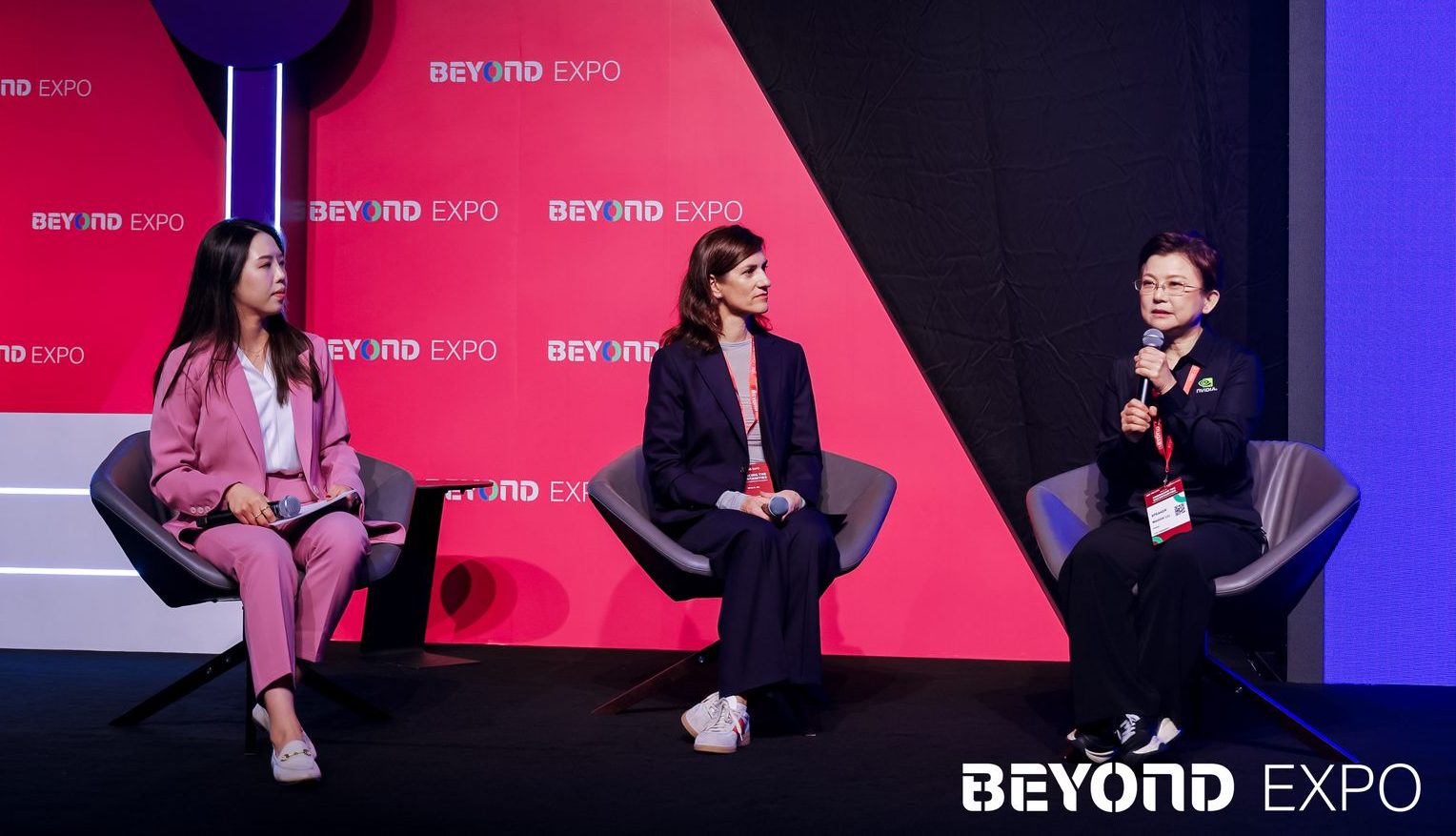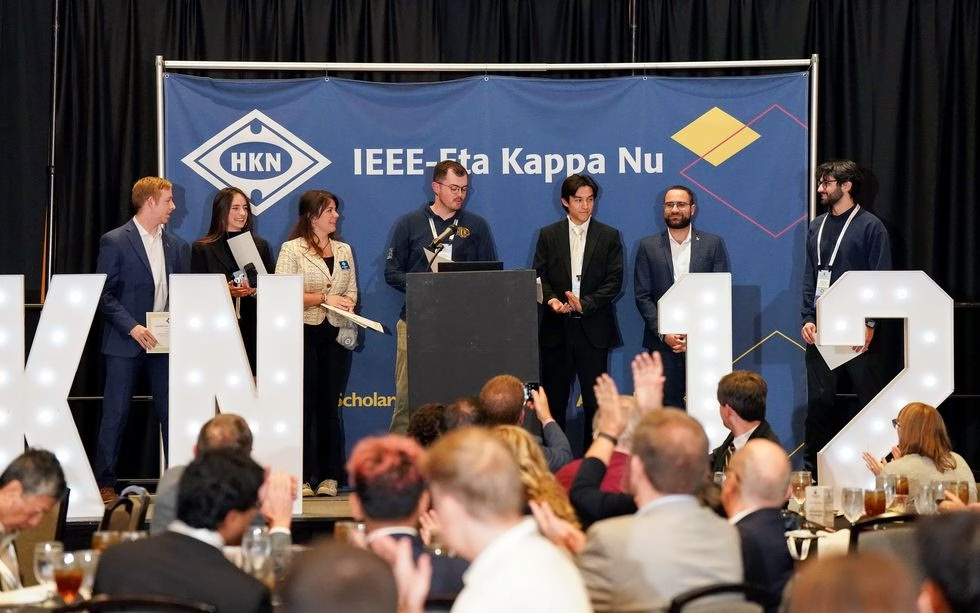BEYOND EXPO 2024 | Empowering women in tech: Insights from leading female innovators at the SheTech Summit

Technology tamfitronics
For the first time, BEYOND EXPO organizers hosted the SheTech Summit this year to celebrate the dynamism of women in technology. The panel brought together women leaders, showcased groundbreaking tech innovations, and prompted conversations on gender diversity in the tech industry.
We highlight key takeaways from three panel discussions where successful female leaders shared their insights and experiences.
Panel 1: The advantages of women leadership in tech and innovative companies
Michelle Chen, co-founder and CEO of Biosyngen, leads the company’s operational oversight, strategic direction, process optimization, government interactions, financial strategy, and investment discussions. With extensive expertise in corporate management, finance, and biopharmaceutical negotiations, Chen has co-established two prominent biotech ventures and amassed 17 years of leadership in Fortune 500 enterprises.
“As for advantages of female traits in the workplace, it’s important to categorize different aspects of rationality,” Chen said. “For instance, when it comes to self-motivation and the desire to engage in meaningful pursuits, women may have a broader focus, especially in the context of running a company. They tend to be more empathetic and attuned to the feelings of their employees.”
Chen said that showing empathy and sensitivity toward employees has contributed to minimal turnover in her tech-driven pharmaceutical company and fostered loyalty and long-term commitment. She added that a predominantly female executive team has allowed Biosyngen to enhance the collective ability to observe and interpret subtle cues involving employee well-being, ensuring sustained success, and organizational vitality.
“Let’s not overly emphasize gender equality or favoritism — everyone deserves equal opportunities,” Chen said. “Whether in AI, technology, or life sciences, passion drives individuals to pursue meaningful endeavors. Women, like everyone else, aspire to contribute meaningfully. It’s about embracing opportunities in industries one is passionate about and applying learned skills. Simplify your approach, adapt to circumstances, and seize opportunities as they come.”
Panel 2: Gender Lens Investing: How Women Shape the Future of the World?
Lu Zhang, founder and managing partner of Fusion Fund, is a Silicon Valley investor and alumna of Stanford University School of Engineering. With expertise in AI in healthcare, enterprise AI/networks, edge computing, and data privacy, she has built a distinguished ecosystem.
Before Fusion Fund, Zhang was a serial entrepreneur and materials science researcher. She has been bestowed with various recognitions, including Young Global Leader by the World Economic Forum, Silicon Valley Women of Influence, and Forbes 30 under 30 VC honoree.
Zhang said that Asian cultures usually stereotype girls as being “obedient and likable.” However, she said that leadership roles entail making tough decisions, inevitably leading to some disapproval.
“Women must embrace this reality: is it more crucial to be liked or respected? As an entrepreneur and leader, earning respect is paramount,” Zhang said. “Ultimately, admiration and even reverence will follow, creating a powerful force.”
During the session, Zhang mentioned an intriguing perspective on the subconscious advantages of women. She said that a woman’s strong intuition “stems from potent subconscious information processing.”
“Over 90% of decisions are subconscious, yet we struggle to rationalize how it captures and computes data,” she said. “Besides computational power, women’s heightened awareness, driven by deep-seated insecurities, leads to heightened data capture. For instance, when walking alone at 2 a.m., women are more alert, consciously collecting data on their surroundings. Conversely, men might overlook potential dangers due to a perceived sense of safety.”
Tina Tao, president and partner at Sinovation Ventures, oversees daily operations and professional services, including fundraising, finance, and business development. With previous work experience at Microsoft, IBM, and Google, she manages the incubation function at the Al Institute of Sinovation Ventures.
Founded in 2009 by Kai-Fu Lee, Sinovation Ventures manages over $2 billion in Assets Under Management across various technology sectors.
“Thirty years ago, we started with only a few female students, and now we’ve reached a significant proportion,” Tao said. “Reflecting on the presence of female university students, which has existed for just over a century, it’s remarkable how women have become a dominant force in education. In the past hundred years, from the first female university student to today, women have nearly become half the student population. Compared to the thousands of years of human civilization history, this rate of progress is incredibly rapid, even remarkably fast.”
Dialogue with Olympian DENG Yaping
Table tennis icon Deng Yaping has clinched 18 world championships, including four Olympic golds, in her stellar 14-year career. With a record for the longest reigning top-ranked female table tennis player in the world, spanning eight years from 1991, her dominance in the sport is unmatched.
Post-retirement, Deng pursued academic excellence, earning undergraduate, postgraduate, and doctoral degrees from Tsinghua University, the University of Nottingham, and the University of Cambridge, respectively.
During the conversation, Deng reflected on the perception gap between her public and private persona. While renowned for her athletic prowess and post-career contributions to sports development, she said she is approachable and gentle, contrary to the fierce demeanor often perceived on the table tennis court.
Deng attributes her success to early challenges and perseverance, highlighting the crucial role of her father’s encouragement amid initial setbacks. She said that failure — including losing a critical match — taught her invaluable lessons in preparation and resilience.
Speaking on the investment in the sports industry, Deng emphasized China’s sports marketing landscape was evolving and she seeks to promote Chinese brands globally through events like the Beijing Olympics.
Deng said one of the most common questions she receives is: “Why are Chinese female athletes so strong?”
“Traditional Chinese culture plays a significant role,” Deng said. “Despite centuries of restrictions and oppression, it instilled resilience in women. Through the teachings of grandmothers and mothers, Chinese women learn to endure hardship and persevere, both at home and in society. Talent aside, the key factor in athletic success is grit. Chinese female athletes exhibit remarkable training intensity and exceptional endurance, reflecting their formidable willpower.”
Discover more from Tamfis Nigeria Lmited
Subscribe to get the latest posts sent to your email.



 Hot Deals
Hot Deals Shopfinish
Shopfinish Shop
Shop Appliances
Appliances Babies & Kids
Babies & Kids Best Selling
Best Selling Books
Books Consumer Electronics
Consumer Electronics Furniture
Furniture Home & Kitchen
Home & Kitchen Jewelry
Jewelry Luxury & Beauty
Luxury & Beauty Shoes
Shoes Training & Certifications
Training & Certifications Wears & Clothings
Wears & Clothings
















